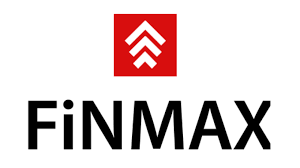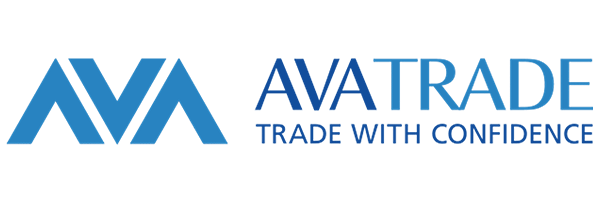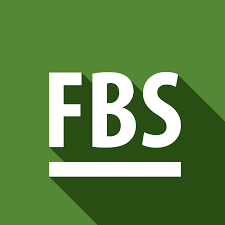Share Brokers New Zealand – Compare the Best Brokers
Investing in shares is one of the best ways to grow your wealth over time, but if you’re new to building a portfolio, you’ll need the best share broker for the job.
In this guide, we’ll help you find the best share brokers NZ by comparing six of our favorite platforms. We’ll also explain how the New Zealand share market works and how to choose the best share broker for you.
-
-
How to Buy Shares in New Zealand in 3 Quick Steps
Share Brokers NZ – Select a Platform
The first step on the road to trading shares is to find the best share broker NZ for you. There are more share brokers in New Zealand than ever before, which is good news for finding one with low share trading fees and plenty of share choices. Here, we’ll highlight six of our favorite brokers and explain why we think each is worth considering.
1. Plus500 - Share Trading Available Through CFDs
Plus500 offers New Zealanders share trading on hundreds of global stocks. Instead of trading shares outright with Plus500, you’ll trade CFDs with leverage of up to 20:1. Margin requirements are low, making it straight forward to place big bets even with a small initial investment.
This NZ share broker offers commission-free share trading and has some of the tightest spreads we’ve seen. That means you pay less per trade, every time you buy and sell shares. On top of that, Plus500 offers user-friendly technical charts that you can use to assess your trades. You can also take advantage of alerts so that you never miss a big price movement.
Our Rating
- Global Markets: Access hundreds of shares
- Leverage: Trade on margins up to 20:1
- Price Alerts: Never miss a trading opportunity
- No Social Trading: Cannot discuss stocks with other traders
- Does not support scalping of hedging
- Education: Does not offer any training resources
76.4% of retail investor accounts lose money when trading.2. FinmaxFX - Share Trading Education
FinmaxFX is built around forex trading, but this NZ broker also offers an impressively wide range of stocks for share trading. There are hundreds of stocks drawn from around the world, including from less-common exchanges such as the Moscow and Athens Stock Exchanges.
One of the things we like best about FinmaxFX is the educational resources this platform offers for new share traders. The broker keeps dozens of articles covering important technical indicators and shares trading basics. Plus, you get access to a demo forex trading account that you can use to safely explore share trading before you commit money to your positions.
Unfortunately, FinmaxFX charges 2-3% for withdrawals, depending on the transfer method you use. Fees for inactivity can also be quite hefty if you don’t place a trade at least once every two months.
Our Rating
- Unique Exchanges: Trade global shares from less popular exchanges
- Trade with Leverage: Up to 20:1 for share trading
- Trader Education: Access guides and a demo account
- Steep Fees: Withdrawal and inactivity fees can add up
3. AvaTrade - Access to MetaTrader
AvaTrade comes with its own advanced charting software, which includes more technical studies than most traders can use. On top of that, AvaTrade provides every account holder with access to MetaTrader 5. This charting and analysis software is extremely popular among experienced share traders because it enables backtesting strategies and creating custom trading signals.
AvaTrade’s selection of shares to trade is more limited than some other NZ share brokers, however. You only get access to around 50 stocks, most of them on the New York and NASDAQ exchanges. That said, we like that AvaTrade offers copy trading. If you find a trader with a winning strategy, you can commit some or all of your portfolio to automatically mirror their share trades.
Our Rating
- MetaTrader 5: Advanced charting and strategy testing
- Copy Trading: Mimic other trader’s share trading strategies
- Leverage: Trade shares at up to 20:1 margin
- Limited Selection: Only around 50 US stocks for share trading
4. Forex.com - Low-cost Share Trading
Forex.com offers NZ share traders access to around 220 stocks in the US and UK through CFDs. Interestingly, this share broker isn’t fully commission-free. You’ll pay trade commissions of around 0.08% per trade, but spreads for share trading can be as low as 0.01%. This low spread means that trading shares with Forex.com is actually cheaper for most investors. Another nice thing about Forex.com is that it keeps other fees low.
The broker does charge an inactivity fee of 25 NZD per month, but only if you haven’t placed a trade in over one year. There are also no deposit or withdrawal fees with this broker. Forex.com’s trading platform is good for advanced share traders. The software includes more than 80 technical indicators and is built with fully customizable dashboards. Helpfully, Forex.com also offers NZ share traders access to a web platform and a mobile app for trading on the go.
Our Rating
- Inexpensive Share Trades: Low commissions and spreads
- Minimal Fees: Small inactivity fee and no withdrawal fees
- Mobile Platform: Trade from anywhere in the world
- Limited Selection: Only offers trading for US and UK stocks
5. FBS - Account Options
FBS offers traders a few different account types, giving you options as to how much you want to invest and what commissions you’ll pay. With any account, the selection of shares is limited to around 40 US and UK companies. So, it may not be the ideal broker if you’re looking to create a diversified share portfolio.
FBS offers its own mobile trading platform, but account holders also get access to MetaTrader 5. This is an advantage for testing out strategies and implementing automated trading algorithms. In addition, FBS offers copy trading, enabling you to mirror other traders’ share portfolios with some or all of your own portfolio.
Pricing and fees at FBS are variable since this broker and depend on your account choice. In general, expect to pay a flat commission on share trades along with a modest spread. The flat trading commission makes this broker relatively expensive if you tend to place many small trades rather than a few large ones.
Our Rating
- Multiple Account Types: Choose any of five account options
- Copy Trading: Mirror successful traders’ portfolios
- MetaTrader 5: Custom charts and automated trading
- Limited Selection: Only around 40 US and UK shares
- Trade Commissions: Flat per-trade fee
Learn How the Shares Market Works in New Zealand
Before you can get started with share trading in New Zealand, you’ll need to understand how the NZ share market works. Here, we’ll cover all the basics you need to know to get started.
What You’ll Need to Know Before You Start Trading
Before you can start trading shares, you’ll need to know a few things. The New Zealand Financial Markets Authority, established in 2011, requires all investors to have a common shareholder number (CSN). This is essentially a pin number for your shareholdings so that they’re uniquely identified as yours. You’ll also need a faster identification number (FIN), which is associated with your CSN.
If you’ve ever traded shares in New Zealand in the past, you probably have a CSN and FIN. If not, your share broker can obtain these numbers for you when you open a new account.
What are Shares and How do you Trade them?
Shares are essentially certificates of ownership of a publicly-traded company. When you purchase a share of Apple, you own a tiny percentage of the company. Owning shares won’t entitle you to a personal meeting with Tim Cook, but you will gain access to shareholder meetings and a share in any profits the company distributes through dividends or other investor payouts.
In order to trade shares, you’ll need a licensed New Zealand share broker. The role of a share broker is to match buyers and sellers. If you want to buy 10 shares in Apple, your broker will match your buy order with a sell order from someone who already owns shares of Apple. In this way, share brokers act as middlemen, ensuring that the New Zealand shares market runs smoothly.
How to Earn from Share Trading
There are two main ways to make money from trading shares. The first is to sell a share for more than what you bought it for. This happens when the value of the share increases from the time you purchase it.
Stock share prices are controlled by supply and demand; when traders across the market want to buy shares of a company, the price rises, and when they want to sell, the price falls. Typically, demand, and thus share price, will rise and fall in response to companies’ earnings reports, market-wide news, or announcements of new products. Beware that the market for some shares is much more volatile than that for others, meaning that the price bounces around much more wildly.
The second way to earn money from share trading is through dividends. Some companies pay out quarterly or annual dividends to shareholders. Often, these payouts are just several cents per share. But, if you own hundreds of shares and receive a dividend every quarter, these payouts can add up to a significant sum over time.
What Regulations are in Place for Share Brokers in New Zealand?
Share trading in New Zealand is regulated by the country’s Financial Markets Authority (FMA), which is a member of the International Organisation of Securities Commissions. The FMA determines what companies are and are not share brokers in New Zealand, and enforces requirements around fair conduct. All share brokers operating in New Zealand are required to register with the FMA.
What Risks are Involved with using a Share Broker in New Zealand?
The biggest risk when using a NZ share broker is that you lose money. Trading shares comes with inherent risk; if the price drops below what you originally paid for stock shares, you will be forced to either hold the shares until the price rises again or to sell them at a financial loss. Trading fees and commissions are also paid out of pocket and cannot be recovered when you lose money on a share trade.
There is also some risk that the value of the NZ Dollar drops while your money is invested in shares. Since most global shares are priced in US Dollars or Pounds, a decline in the value of the NZ Dollar can reduce your effective purchasing power. The NZ Dollar has lost significant value in the recent past due to unpredictable natural events like the Canterbury earthquake and the 2018 drought.
How Trading CFDs and Shares Differ
It’s extremely important to understand the difference between shares and contracts for differences (CFDs). CFDs are a type of derivative that lets you speculate on whether the price of a share will rise or fall. But, when you buy a CFD for a share, you don’t actually own the share itself.
This can be good or bad depending on your objective. On the one hand, you’re not eligible to collect dividends when trading with CFDs. On the other hand, you can use CFDs to bet that a stock’s price will decline rather than rise (known as shorting a stock).
Trading with CFD brokers can also give you access to leverage. With leverage, you can create a larger effective position size than you have as cash in your trading account. For example, if you have $1,000 in your account, you can buy $10,000 worth of share CFDs when applying a leverage of 10:1 .
What to Look for in an Account
When it comes to choosing the right share broker for you, there are several key factors to consider.
NZX Membership
Do you want to trade New Zealand stock shares? If so, you’ll need a broker that is a member of the New Zealand Exchange (NZX). NZX is where most of New Zealand’s largest public companies are listed for trading.
If you choose a broker that isn’t an NZX member, you can still trade shares of companies that are listed on other major exchanges around the world.
Educational Resources
For beginner share traders, educational resources can go a long way towards improving your profitability and making you a more confident trader. Many New Zealand share brokers offer articles, videos, webinars, and more that can help you learn about specific topics like technical indicators or common trading strategies.
In addition, be sure to check whether a prospective share broker offers a free demo account. Using a demo account is a good way to try out a trading strategy and get the hang of share trading before committing real money.
Website and Trading Platform
Your broker is more than just a middleman for buying and selling shares. It’s also the platform you’ll use for researching trades and placing orders.
Be sure to closely examine whether a NZ share broker offers its own proprietary trading platform, a third-party software like MetaTrader, or both. Beginners may prefer easy to use trading software with fewer options, while more advanced traders may prioritize tools like strategy testing and custom indicators.
It’s also important to note whether the trading software is available on multiple platforms. Some share brokers offer robust mobile apps or web interfaces for trading from anywhere. Others require that you use a desktop-based system that offers more functionality, but limits your flexibility.
Customer Service
Customer service is a big deal when it comes to choosing a share broker. There’s nothing worse than having issues with a trade, then waiting for help as you watch the opportunity disappear.
Check whether a prospective broker offers customer service by phone, email, live chat, or all three. Also, make sure that service is available during New Zealand business hours.
Brokerage Fees and Costs
Fees and costs are extremely important when choosing a broker. Most New Zealand share brokers are commission-free, but some still charge a percentage or flat rate for every trade. Almost every broker charges a spread, which is the difference between what you pay for a stock and what you can sell it for. These charges are noteworthy because they can eat into your profits.
Other fees to watch out for include withdrawal fees and inactivity fees. These vary widely from one platform to another, so be sure to check what the policy is at your preferred broker.
Other Services
Many brokers offer much more than just share trading, including forex or commodity trading. While you might be focused on shares right now, having the option to expand into other assets can help you diversify your portfolio in the future. Carefully consider whether you need access to these assets and whether the best share broker is also the best forex broker.
Pros and Cons of Share Trading
Pros
- Access hundreds of stocks around the globe
- Invest in multiple market sectors
- Apply leverage to increase your position sizes
- Follow and copy other traders with social share trading
- Many NZ share brokers offer commission-free trading
Cons
- Stock market can be volatile
- You cannot collect dividends when trading share CFDs
- Some brokers charge withdrawal and inactivity fees
- Not all NZ share brokers offer trading for NZ companies
Conclusion
Trading shares is one of the best ways to grow your wealth over time. With the best New Zealand share brokers, you can start buying and selling shares of companies around the world and build a diversified portfolio. Use any of our recommended share brokers to get started with share trading today.
FAQs
Can I buy shares of New Zealand-based companies?
You can buy shares of New Zealand companies if your broker is a member of the NZX exchange. If it is not, you can only buy shares of companies listed on other exchanges around the world where that share broker is registered for trading.
What is the spread and why does it matter?
The spread is the difference between what you can buy a stock for and what you can sell it for at the same time. The spread is essentially a percentage-based trade commission, since the broker pockets this difference every time you buy and sell shares.
What if my share broker doesn’t offer trading for a specific company?
If your share broker doesn’t offer trading for a specific company, your best option is to find a competitor that your broker does offer trading for. Unfortunately, you must have an account with a broker that offers trading for a specific company’s shares in order to trade that company.
Haydn Squibb
Haydn Squibb
A journalist, with experience writing across the UK financial and professional service sector. Haydn holds a degree in Media Writing and enjoys covering about a wide range of topics from financial markets and current affairs to home, health and lifestyle. Haydn's work has been published on a number of top tier websites.View all posts by Haydn SquibbWARNING: The content on this site should not be considered investment advice and we are not authorised to provide investment advice. Nothing on this website is an endorsement or recommendation of a particular trading strategy or investment decision. The information on this website is general in nature, so you must consider the information in light of your objectives, financial situation and needs. Investing is speculative. When investing your capital is at risk. This site is not intended for use in jurisdictions in which the trading or investments described are prohibited and should only be used by such persons and in such ways as are legally permitted. Your investment may not qualify for investor protection in your country or state of residence, so please conduct your own due diligence or obtain advice where necessary. This website is free for you to use but we may receive a commission from the companies we feature on this site.
Copyright © 2022 | Learnbonds.com
We use cookies to ensure that we give you the best experience on our website. If you continue to use this site we will assume that you are happy with it.Scroll Up





